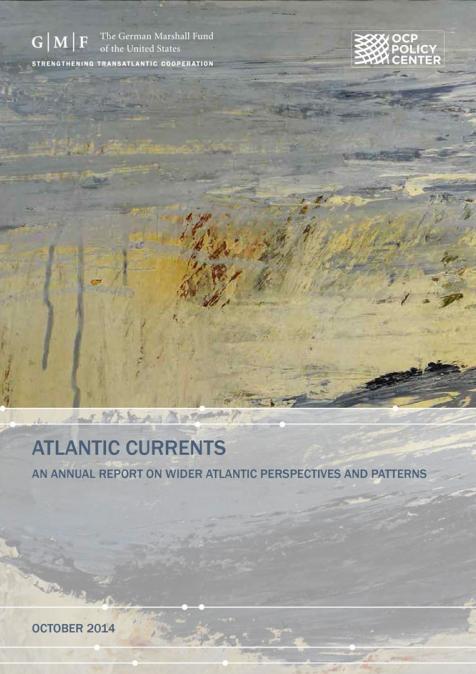Publications /
Book / Report
The concept of a “Wider Atlantic” has been finding its way into mainstream discourse, as it is progressively molding into an alternative to the present-day understanding of transatlantic relations. The attention is being refocused to a wider geographic area around the Atlantic basin, which includes Southern Atlantic states in the policy and opinion-shaping conversation (s). With 23 states now comprising the Western Atlantic Coast of Africa, this continent has an ever-growing role to play in the new geopolitical discussions pertaining to a “Wider Atlantic” region. Enlarging the exchange to include states that were previously perceived as the strategic backwater is therefore a reality aimed at engaging a wider range of Atlantic partners, who could potentially contribute to reshape and redefine the existing standards. Hence, the wider Atlantic encourages new forms of multilateralism, as well as a discursive and practical reconfiguration, that account for the change in underlying power dynamics and consequent modern global challenges.
During the 2018 edition of the Atlantic Dialogues Emerging Leaders program, the 45 selected participants took part in a closed-door meeting to discuss and elaborate a strategy to push forward and reinforce the feeling of belonging to the Atlantic community, and they tackled the two following priorities:
- strengthening the transatlantic community as such
- adopting a common discourse to perhaps reach, or at least get closer to, the goals set by the UN 2030 Agenda
Throwback to the Emerging Leaders Plenary and closing remarks: Building Collective mindsets




